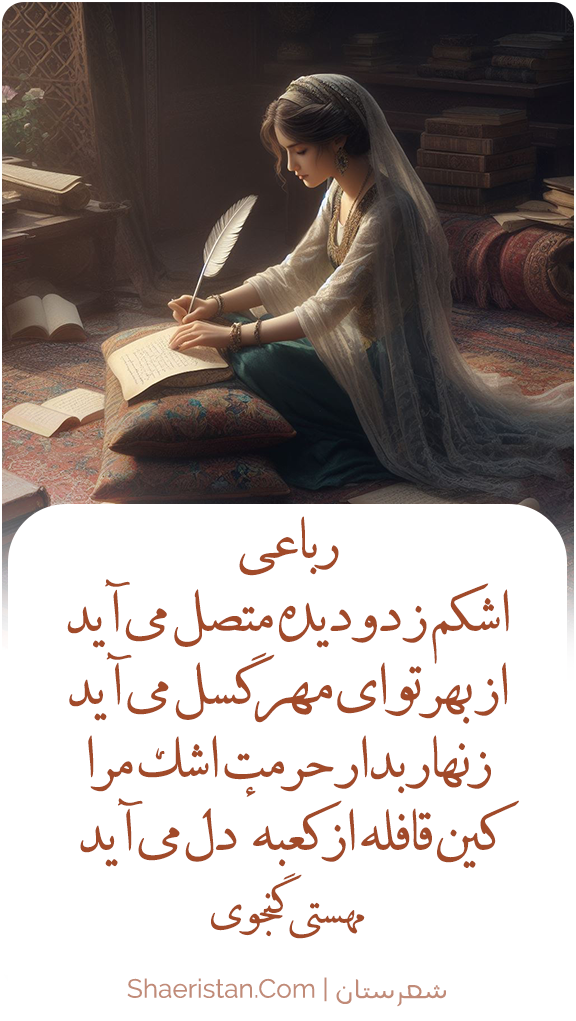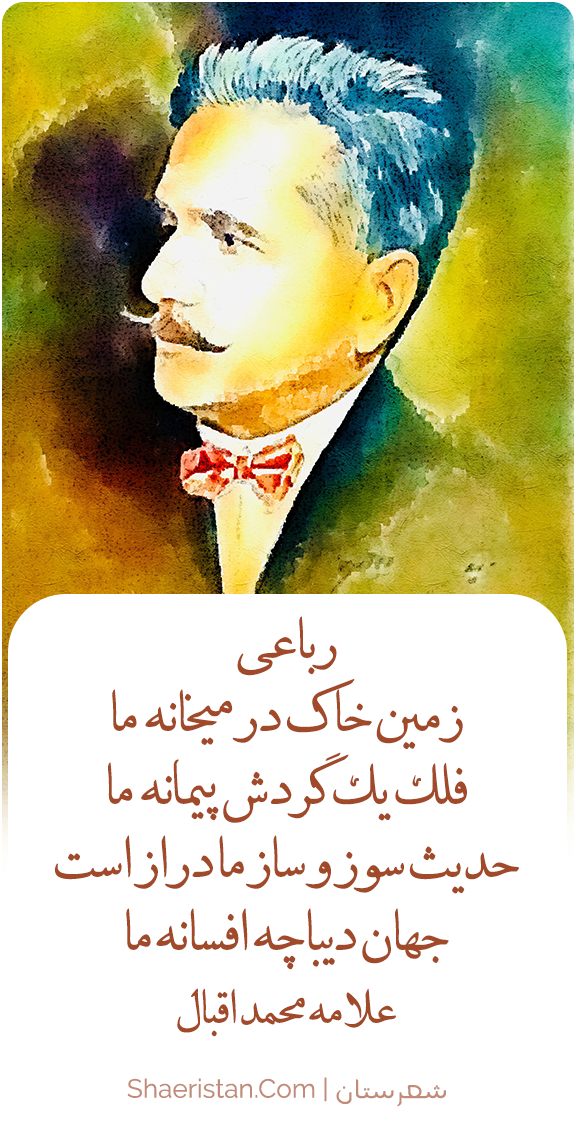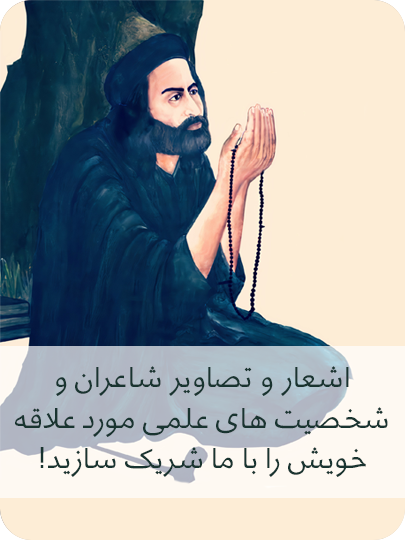Rumi said: Whoever is loved is beautiful, but this doesn’t mean that whoever is beautiful is loved.
“There are girls more beautiful than Laila,” they used to tell Majnun. “Let us bring some to you.”
“I do not love Laila for her form,” Majnun would reply. “Laila is like a cup in my hand. I drink wine from that cup. I am in love with that wine. You only have eyes for the goblet and do not know the wine. A golden goblet studded with precious stones, but containing only vinegar, what use is that to me? An old broken gourd with wine is better in my eyes than a hundred goblets of gold.”
A person must be moved with passion and yearning for them to tell the wine from the cup. This is the same as someone who is hungry, who hasn’t eaten for ten days, and another who has eaten five times a day. Both see a loaf of bread. The full one sees only more food, but the hungry person sees life, itself. To the hungry, this bread is a goblet, and the life it brings is wine. Such wine cannot be known except through hunger and yearning. Acquire this appetite so you will not only see the appearances of form, but will find the Beloved everywhere.
The forms of this world are cups. Science, art and knowledge are inscriptions upon the cup. When the cup is broken, those inscriptions disappear. Therefore, those who drink the wine see “the eternal reality, the deeds of holiness…”
Anyone asking a question must first come to the awareness that their knowledge is incomplete, and secondly that there is wisdom they know nothing about. Hence, the saying, “Asking is half of knowing.”
But there must always be one in this world who knows. Everyone looks to someone, because ultimately we are looking for God. But there must always be one who can distinguish those who are hitting the mark from those who have been struck by the arrow of someone else’s bow.
If you hear words coming through a wall, you know that wall isn’t speaking and that voice belongs to someone else. The saints are like this. They have died before death, and have become like doors and walls. Not even a hair’s tip of separate existence remains in them. In the hands of Reality, they are shields – but the shield doesn’t move under its own power. Thus the saints say, “I am the Truth,” meaning, “I am nothing at all, I move by the Hand of God.” Look upon such shields as God. Do not take up violence against God. Striking blows against such shields are just like declaring war against God, Itself.
Every saint is God’s proof. The rank and station of men and women is determined by how they treat the saint. If they are hostile to the saint, they are acting hostile against God. If they befriend the saint, they have made friendship with God.
“Whoever has seen them has seen Me.
Whoever finds them has found Me.”
God’s saints are familiar with the secrets of His refuge. They have become intimate with the Divine Mysteries that “none but the purified shall touch.” If they turn their backs on the tomb of a great saint, it is not out of disobedience or neglect. They have turned their faces toward that saint’s essence, for these words spoken here are their essence. There is no harm in turning away from the body to face the soul.
It is a custom of mine that I want no heart to become distressed through me. During our meetings, sometimes a great multitude thrust themselves upon me and some of my friends try to fend them off. That disturbs me. I have said a hundred times, “Say nothing on my account. I am content with that.” I care to such a degree that when such friends come to me, I dread the thought of boring them, so I speak poetry for their enjoyment. Otherwise, what do I care about poetry? By Allah, I care nothing for poetry. There is nothing worse in my eyes. To me, it is like the cook who plunges his hand into tripe, cleaning it out for the sake of a guest’s appetite.
A merchant searches to see what products are needed in their city, and what the people want to buy. Then they buy and sell those goods and services, even if they are the lowest of things in their eyes. I have studied many sciences and taken pains to offer fine, rare and precious things to the scholars and researchers, the clever ones and the deep thinkers who come to me. God has willed this. He gathered to me all those sciences, and assembled here all those pains, so I would become occupied with this work. What can I do? In my own country, and amongst my own people, there is nothing more shameful than poetry. If I had remained there, I would have lived in harmony with their temperament. I would have practiced what they love, such as giving lectures, composing books and preaching.
The Amir said: “The root of the matter is action.”
Rumi said: Where are such people of action, so that I can teach them action? But now look how you cock your ears, seeking after words instead of action. If I were to stop speaking now, you would become upset. Become a seeker of action, so that I can show you action!
I am looking all over the world for students of action so that I can teach action. I am looking all over the world for anyone who knows action, but I find no student of action – only of words, and so I occupy myself with words. What do you know of action? Action is only known through action. There is not one traveler upon this road – it is empty – so how will anyone see if we are on the true path of action?
After all, prayer and fasting are not action; these are forms of action. Action is an inward reality. From the time of Adam to the time of Mohammed, prayer and fasting have changed their form, but action is still the same.
Action is not what people think it is. People believe action is this outward show. But if a hypocrite performs only the form of action, such as prayer or fasting, it gains them nothing, since the sincere desire for true action was not present.
The secret principle of all things is speech and words. You do not yet know the true knowledge of speech and words, therefore you consider them unimportant. However, speech is fruit from the tree of action, for words are born of action. God created the world by a word.
You may have faith in your heart, but unless you share it through words, it is worth nothing. When you say, “In this present age words are of no account,” you say this with words, do you not? If words are of no account, then why do we hear you say this with words?
Someone asked: “When we do a good deed, if we have hopes and expectations of a good reward from God, does that harm us?”
Rumi answered: By Allah, we must always have hope. Faith, itself, consists of fear and hope. Someone once asked me, “Hope itself is good, but what is this fear?” I said, “Show me a fear without hope, or a hope without fear. The two are inseparable.” For example, a farmer plants wheat. Naturally he hopes that wheat will grow. At the same time he is afraid some blight or drought may destroy it. So, there is no hope without fear, or fear without hope.
Now, when we hope expectantly for a reward, we will surely work with greater effort. Expectation becomes our wings, and the stronger our wings the farther the flight. If, on the other hand we lose hope, we become lazy and of no value to anyone. A sick person will take bitter medicine and give up ten sweet pleasures, but if they have no hope for health, why would they endure this?
We are a mixture of animal and speech. If we do not speak outwardly, we still speak inwardly – we are constantly speaking. We are like a river in which clay is mixed; the pure water is our speech, while the clay is our animality. But the clay in us is an accident. Do you not see how those pieces of clay have crumbled and rotted away, while mankind’s speech, poetry and sciences, both bad and good have remained?
The ‘man or woman of heart’ is a universe. When you have seen them, you have seen all. “All game is in the belly of the wild ass.” All creatures in this world are contained in the man and woman of heart.
Good and evil, the dervishes may be,
Whoever is not so, no dervishes are they.
Once you have seen one who is the whole, surely you have seen the whole world. Whoever you see after is a mere repetition. That person’s speech is contained in the words of the whole. Once you have heard their words, every word you hear thereafter is an echo.
Whoever beholds such a one, in any place,
Has seen all men and women, all time and space.
As the poet says:
You are the true transcription
Of the Archetype Divine.
A glass through which the Sun’s
Own loveliness does shine.
Within, or without,
Wherever it may lie,
Accept every desire,
And declare, “‘Tis I!”






